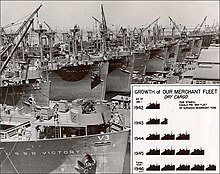Dear Mom & Dad,
A little slow in writing
to you this week. I guess
everything is still in
on a bad
way. I haven't moved up to
Germany yet, but expect to in a
few days. I get a jeep and will
drive through. It is somewhere
near four hundred miles. A
luitant [sic] will be with me. He
was a pilot and wants to
ride in a jeep so he can see
the country. I guess we will
make quite a trip out of it.
I was in Brussels again this
past weekend. I guess it will be
the last time.
Last Friday night someone
broke into our C-47's and
stole all the parachutes. There
are sixty eight missing and they
cost $700. a piece. Some black
market gang they think did it.
They can sell the silk out of them.
I received some mail this week
for a change. Had a letter from you
of Sept 5. Gosh it doesn't seem
possible that school has begun
again. I see by the Blissfield
paper, the sugar factory is going
to operate this year. Wish I could
get back to work there.
Well they are sending fellows
out of our outfit fast now. High
points and age. I probably will
be leaving around the first of the
year. I don't think I will be
on my way or home for Christmas
but I probably will be home in
Feb. sometime.
As for Christmas present just
send me stuff to eat. I have
plenty of other things.
We had the movie G.I.Joe
here tonight. It is Ernie Pyle's
story. It really is a realistic
picture.
Had a letter from Harley. He says
they are going to make him into
a bugler. Also a letter from
Freeman. Gosh everyone has
been swell about writing. I try
to write everyone, but when I
start writing I run out of news.
I suppose everyone will bawl
me out for not writing sooner
but I can't help it. After I get
to Germany I will have more time
and things will be more settled
again. As now we are just
living where we can find a roof
over our heads and most of our
clothes packed away.
Well I guess this is about
all for now. Please write as
often as possible. Goodnight for
now.
Love Ralph.
The next letter will be posted on September 23rd.
Background Information (and comments):
- If you're wondering about parachutes being sold on the black market, here is an excerpt from a BBC website about what sometimes happened to parachutes during wartime:
Silk parachutes, which were constructed from triangles of material, could be unpicked, re-stitched into rectangles and re-cut to make luxurious underwear. Consequently, when an airman was seen to bail out there was frequently a race between the authorities and civilians to recover the parachute, while sometimes a portion could be bought on the black market.
- Here is some information about the C-47 plane:
- The Douglas C-47 Skytrain or Dakota is a military transport aircraft developed from the civilian Douglas DC-3 airliner. It was used extensively by the Allies during World War II and remains in front line service with various military operators.
- Here are 2 pieces of information about the movie G.I. Joe:
The Story of G.I. Joe was enthusiastically received upon its release. General Dwight D. Eisenhower went so far as to call it "the greatest war picture I've ever seen" and Wellman himself regarded it as the finest work of his career. James Agee characterized the film as a "tragic and eternal work of art," emphasizing the film's subtlety of conception: "With a slight shift of time and scene, men whose faces have become familiar simply aren't around any more. The fact is not commented on or in any way pointed; their absence merely creates its gradual vacuum and realization in the pit of the stomach. Things which seem at first tiresome, then to have become too much of a running gag, like the lascivious tongue-clacking of the professional stallion among the soldiers (Wally Cassell) or the Sergeant's continual effort to play the record of his son's voice, are allowed to run their risks without tip-off or apology. In the course of many repetitions they take on full obsessional power and do as much as anything could do to communicate the terrific weight of time, fatigue, and half-craziness which the picture is trying so successfully to make you live through." While recent World War II films such as Saving Private Ryan (1998) may go further in depicting the visceral horrors of war, the artistic achievement of The Story of G.I. Joe is arguably more lasting: it portrays the camaraderie, courage and underlying fear of the ordinary fighting man without once resorting to easy sentimentality.
During World War II, American journalist Ernie Pyle (Burgess Meredith) goes abroad to write about the arduous experiences of stalwart members of the U.S. Army. In Africa and Europe, Pyle encounters brave soldiers who have put their lives in danger in order to defeat Hitler and Mussolini, including Lt. Bill Walker (Robert Mitchum), who is working hard to instill his men with a positive outlook, and Sgt. Steve Warnicki (Freddie Steele), whose young child is growing up back in America.



